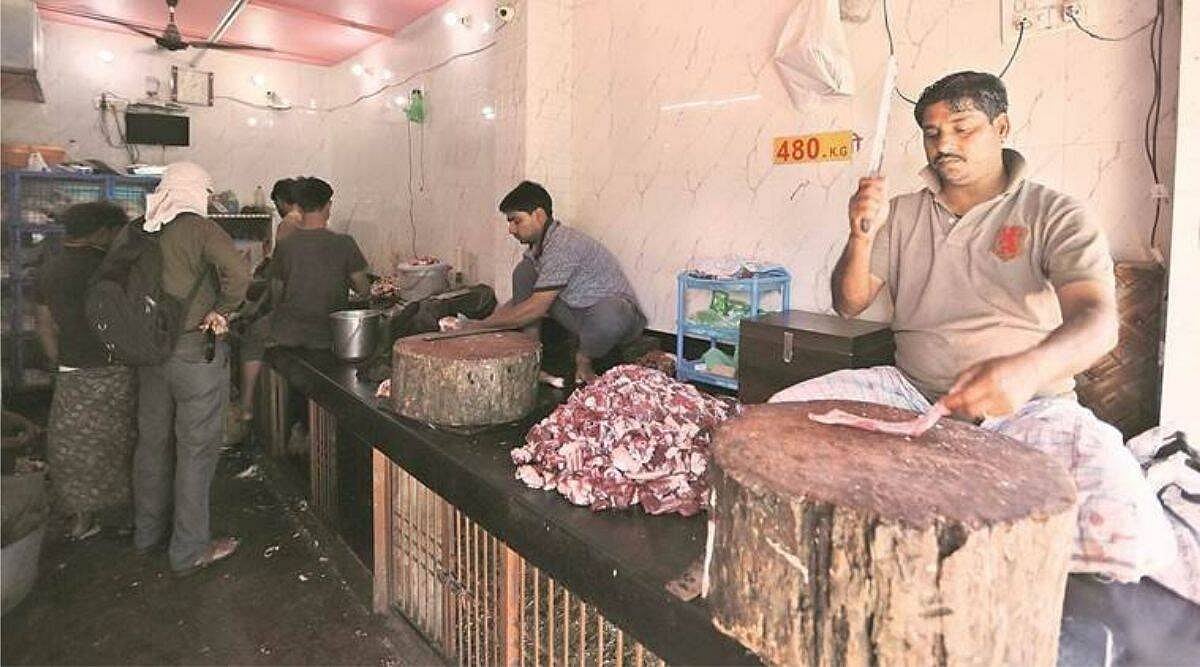The shutdown of meat shops during Navratri began, as almost every polarising campaign does, as a demand by fringe groups years ago but has escalated into stated or unstated policy in the recent past. After cities in Gujarat, holy towns like Varanasi, and Ghaziabad saw meat shops forcibly or voluntarily shut down during the nine-day Hindu festival dedicated to Goddess Durga, New Delhi and Bhopal appear to have joined the bandwagon this year. Chaitra Navratri is scheduled to start on March 30. While meat-eating Hindus adopt a restrictive or vegetarian diet during Navratri, it does not mean that meat cannot be sold at all or that everyone turns vegetarian for those days. The trend, legal eagles have pointed out, is unconstitutional. Equally important, it is classist and damages the social fabric at a time that demands tolerance and acceptance between communities and religions, showing a spirit of accommodation.
Delhi BJP MLAs Ravinder Negi and Karnail Singh demanded the closure of meat shops last week; minister Parvesh Verma announced it two days ago but took care to clarify that all “illegal” shops would be removed during the festival. If they are indeed illegal, they should have been razed long ago or not allowed to set up. Madhya Pradesh minister Rakesh Singh, also of the BJP, made a similar demand in Bhopal. These are not the first elected representatives to make a demand so obviously divisive in society and targeted at a section of their electorate too, nor will they be the last. Reports detail how Negi threatened to ensure that meat shops remained shut even if the government directive did not come about and how he exhorted Hindu shopkeepers and street vendors to put up saffron flags.
The intent to polarise society and deepen the fissures, rather than work towards building tolerance, if not harmony, is clear from these demands and actions. If it is merely about respecting the sentiments of a religious community during a festival it observes, then these crusaders should have demanded a shutdown of liquor shops during Ramadan, which, of course, they have not. The closure of meat shops violates constitutional rights and freedoms and selectively targets small businesses belonging mostly to middle- or lower-class Muslims, given that the demand or order does not prohibit online deliveries of meat and fish or does not mandate no-meat menus in hotels during Navratri. It is classism disguised as religious sentiments. This, then, is not about the food itself but leveraging it to further religious divisions – a slippery slope for India.
